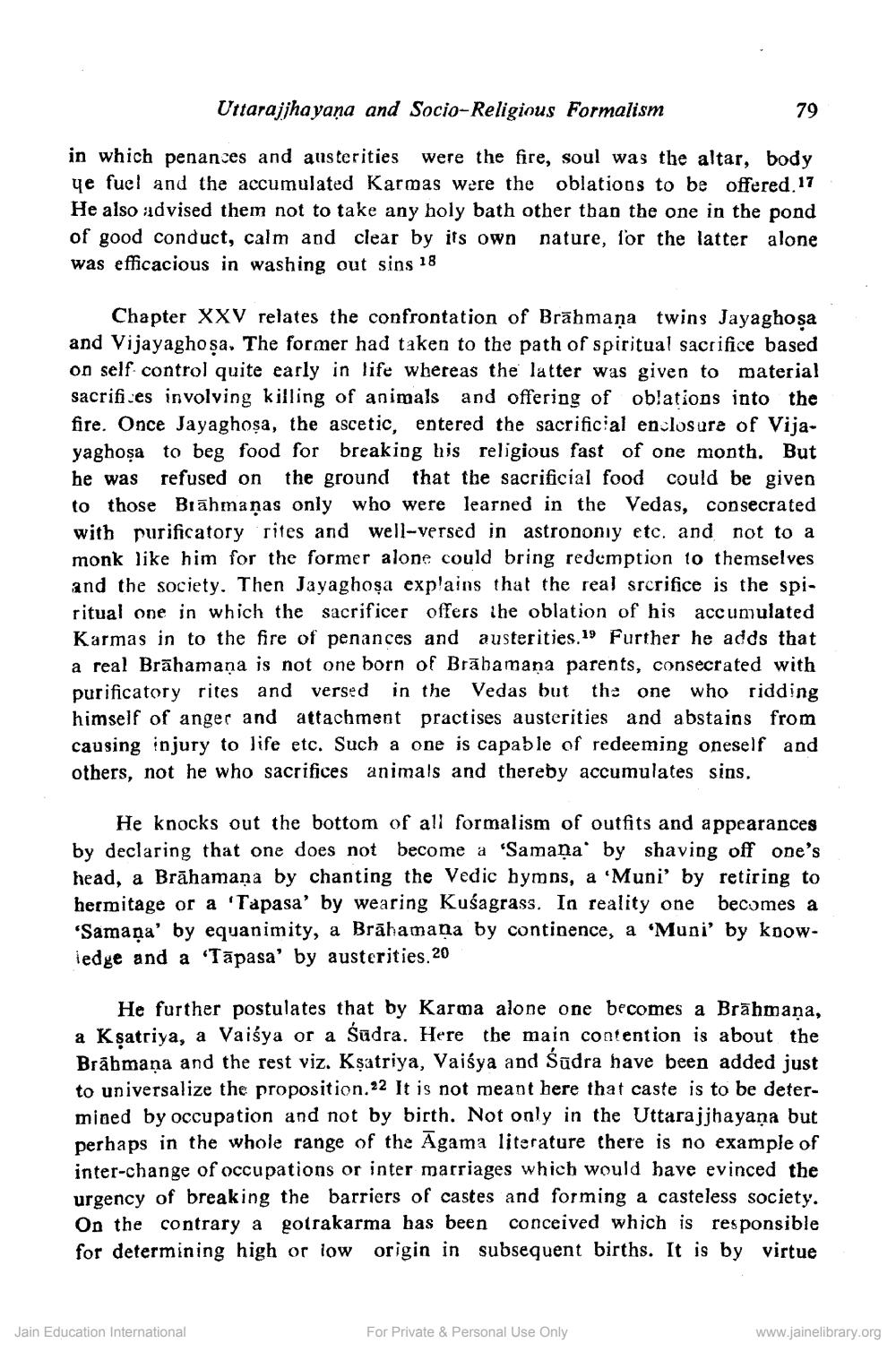________________
Uttarajjhayaņa and Socio-Religious Formalism
79
in which penances and austerities were the fire, soul was the altar, body ye fuel and the accumulated Karmas were the oblations to be offered 17 He also advised them not to take any holy bath other than the one in the pond of good conduct, calm and clear by its own nature, for the latter alone was efficacious in washing out sins 18
Chapter XXV relates the confrontation of Brāhmaṇa twins Jayaghosa and Vijayaghosa. The former had taken to the path of spiritual sacrifice based on self control quite early in life whereas the latter was given to material sacrifices involving killing of animals and offering of oblations into the fire. Once Jayaghoșa, the ascetic, entered the sacrificial enclosure of Vijayaghoșa to beg food for breaking his religious fast of one mon he was refused on the ground that the sacrificial food could be given to those Brāhmaṇas only who were learned in the Vedas, consecrated with purificatory rites and well-versed in astrononiy etc. and not to a monk like him for the former alone could bring redemption to themselves and the society. Then Jayaghoşa explains that the real srcrifice is the spiritual one in which the sacrificer offers ihe oblation of his accumulated Karmas in to the fire of penances and austerities. 19 Further he adds that a real Brāhamana is not one born of Brăbamana parents, consecrated with purificatory rites and versed in the Vedas but the one who ridding himself of anger and attachment practises austerities and abstains from causing injury to life etc. Such a one is capable of redeeming oneself and others, not he who sacrifices animals and thereby accumulates sins,
He knocks out the bottom of all formalism of outfits and appearances by declaring that one does not become a 'Samaņa by shaving off one's head, a Brāhamana by chanting the Vedic hymns, a Muni' by retiring to hermitage or a 'Tapasa' by wearing Kusagrass. In reality one becomes a 'Samana' by equanimity, a Brāhamana by continence, a 'Muni' by knowledge and a "Tāpasa' by austerities. 20
He further postulates that by Karma alone one becomes a Brāhmaṇa, a Ksatriya, a Vaiśya or a Sūdra. Here the main contention is about the Brābmaņa and the rest viz. Ksatriya, Vaiśya and Sūdra have been added just to universalize the proposition.22 It is not meant here that caste is to be determined by occupation and not by birth. Not only in the Uttarajjhayana but perhaps in the whole range of the Agama literature there is no example of inter-change of occupations or inter marriages which would have evinced the urgency of breaking the barriers of castes and forming a casteless society. On the contrary a gotrakarma has been conceived which is responsible for determining high or low origin in subsequent births. It is by virtue
Jain Education International
For Private & Personal Use Only
www.jainelibrary.org




